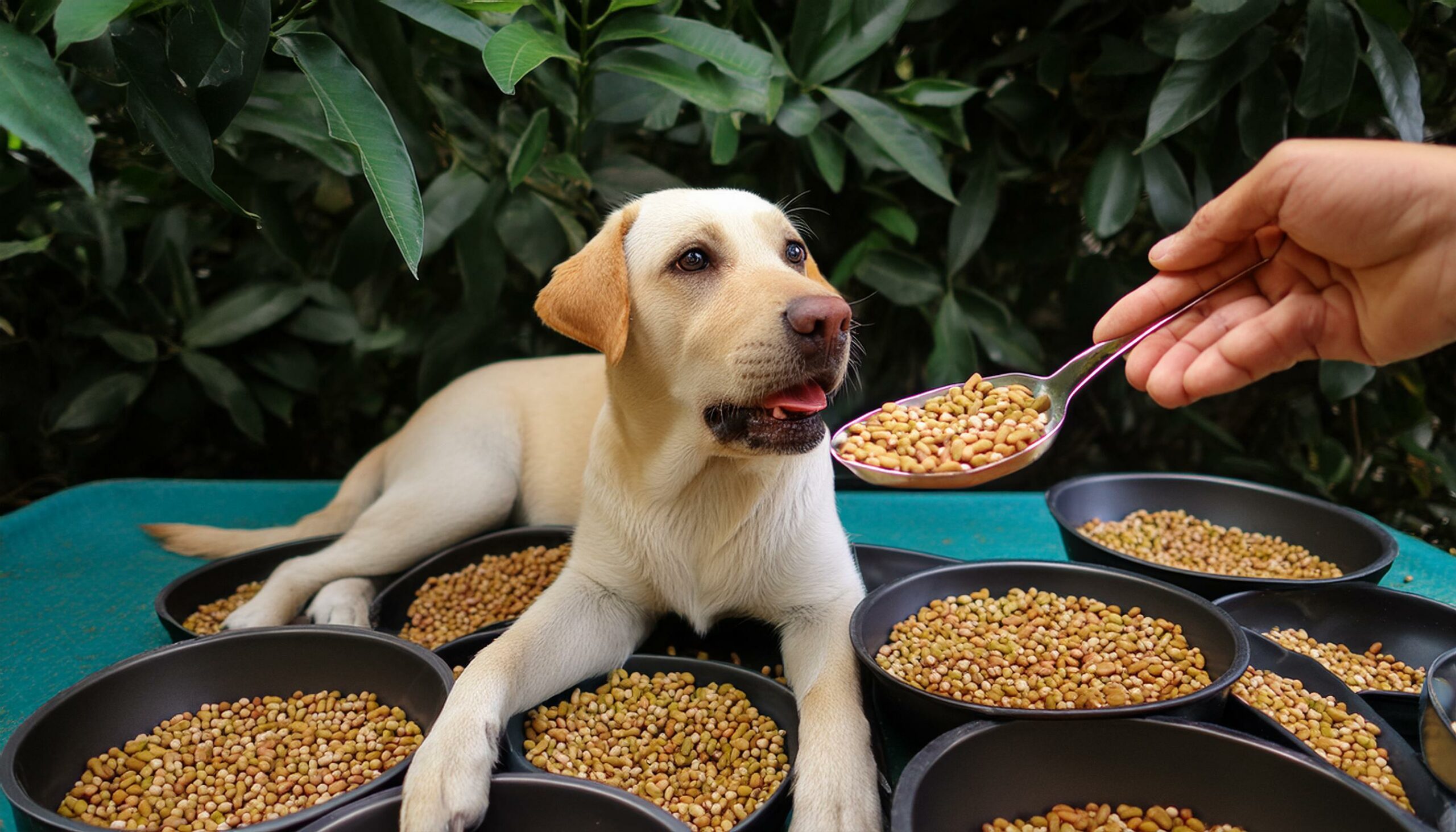Labradors, popularly referred to as Labs, are a beloved breed renowned for their intelligence, loyalty, and affectionate nature. Originating from Newfoundland, Canada, these dogs were initially bred for assisting fishermen and hunters. Over the years, Labradors have become cherished family pets, service dogs, and invaluable members of search and rescue teams.
Understanding Labrador Appetite
Labrador Diet and Nutrition Needs
Labradors are known for their robust appetite, which stems from their history as working dogs with high energy requirements. Providing a well-balanced diet is crucial to their overall health and well-being. A diet rich in protein, healthy fats, vitamins, and minerals supports their active lifestyle and promotes optimal growth and development.
Factors Influencing Labrador Appetite
Several factors influence a Labrador’s appetite, including age, activity level, metabolism, and individual preferences. Additionally, environmental factors, such as temperature and season, can impact their food intake. Understanding these factors helps owners tailor their Labrador’s diet to meet their specific needs.
Signs of Hunger in Labradors
Behavioral Signs
Labradors may exhibit various behavioral cues when they are hungry. These may include pacing, whining, begging for food, or constantly seeking attention from their owners. Paying attention to these behaviors can help determine when it’s time to feed them.
Physical Signs
In addition to behavioral cues, physical signs of hunger in Labradors may include licking their lips, drooling, and eagerly approaching their food bowl when it’s mealtime. Observing these physical cues can provide insights into their hunger levels.
Reasons Behind Constant Hunger

Genetics and Breed Characteristics
Labradors have a genetic predisposition towards food motivation, stemming from their history as retrieving dogs. Their strong food drive is deeply ingrained in their breed characteristics, making them prone to seeking out food frequently.
Health Issues
Sometimes, constant hunger in Labradors may indicate underlying health issues such as hormonal imbalances, digestive disorders, or metabolic conditions. It’s essential to rule out any medical concerns by consulting a veterinarian if their appetite suddenly increases or persists.
Lack of Satiety
Labradors may also experience a lack of satiety due to factors such as rapid eating habits or insufficient nutrient absorption. This can lead to constant hunger, despite consuming adequate calories, and may require adjustments to their feeding routine.
Managing Labrador Hunger
Feeding Schedule and Portions
Establishing a consistent feeding schedule and portion control is vital for managing a Labrador’s hunger. Dividing their daily food intake into multiple smaller meals helps prevent overeating and maintains stable energy levels throughout the day.
Nutrient-Rich Meals
Opting for nutrient-rich, high-quality dog food tailored to Labradors’ nutritional needs ensures they receive essential nutrients without excess fillers or empty calories. Including lean protein sources, healthy carbohydrates, and omega-3 fatty acids supports their overall health and helps keep them satisfied.
Avoiding Overfeeding
While it may be tempting to indulge a Labrador’s voracious appetite, overfeeding can lead to obesity and related health issues. Monitoring their food intake, avoiding excessive treats, and incorporating regular exercise into their routine are essential for maintaining a healthy weight.
Addressing Concerns About Labrador Hunger
Consulting a Veterinarian
If concerns persist regarding a Labrador’s constant hunger or unusual eating habits, consulting a veterinarian is recommended. A thorough examination can help identify any underlying health issues and determine the best course of action to address them effectively.
Training and Behavioral Approaches
Implementing training and behavioral techniques can help manage a Labrador’s food-related behaviors. Teaching them impulse control, establishing boundaries around mealtime, and providing mental stimulation through interactive feeding puzzles can help satisfy their food drive in a constructive manner.
Conclusion
While Labradors are known for their insatiable appetite, constant hunger may indicate underlying issues that require attention. By understanding the factors influencing their appetite, recognizing signs of hunger, and implementing effective management strategies, owners can ensure their Labradors remain healthy, satisfied, and thriving companions.
Unique FAQs
Can Labradors be prone to overeating?
Yes, Labradors have a genetic predisposition towards food motivation, making them prone to overeating if not monitored closely.
How often should I feed my Labrador?
It’s recommended to feed adult Labradors two meals a day, divided into smaller portions to prevent overeating.
What are some healthy treats for Labradors?
Healthy treats for Labradors include fruits, vegetables, lean meats, and commercial treats specifically formulated for dogs.
Why does my Labrador beg for food even after eating?
Labradors may beg for food due to their strong food drive, habit, or boredom. Providing mental stimulation and avoiding reinforcement of begging behavior can help address this.
Should I be concerned if my Labrador’s appetite suddenly changes?
Yes, sudden changes in appetite or eating habits should be monitored closely and discussed with a veterinarian to rule out any underlying health issues.
